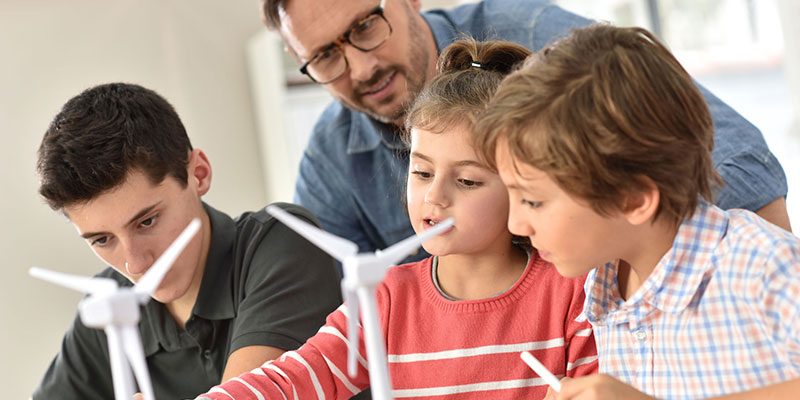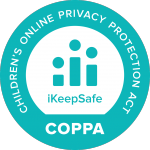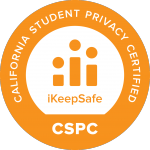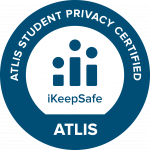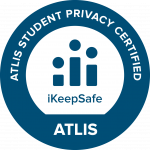Most adults would never go back to middle school, even if they were offered a million dollars. The social pressure, the hormones, and the awkwardness of tween years can stress even the most socially adroit students.
As your child prepares to enter a new school — whether leaving elementary to start middle school, or transferring to a different district mid-year — their love of science can help them make friends, reduce stress, and navigate the murky tween waters.
Tap into your child’s love of science and find ways for them to get involved and make friends in their new environment.
After-School Activities Create Stress-Free Learning Environments
While friends are an essential part of childhood, your kids are attending school to learn. Science clubs can take the stress out of the classroom experience and let your kids focus on the subjects they love.
“Many kids find simply reading about science unappealing,” Tami O’Connor, CEO at Educational Innovations, writes. “We believe it’s that meaningful, roll-up-your-sleeves kind of experience that brings the magic of science to light.”
The company offers an elementary-based science club membership with the goal being to improving science literacy both in and outside the classroom. Product for experiments include cricket lollipops and glowing slime, making science a novel experience, not just another subject to sit through each day. This method can be much more engaging than simply reading science-based content and is a popular option for schools and virtual learners.
“If your child enjoys a particular subject they can go further by participating in its academic extension,” Lisa Linnell-Olsen writes at Very Well Family. “They will have the chance to socialize with other students who have similar interests.”
Science and math clubs create opportunities to work on individual projects that students are interested in and give them time to build friendships in group work with others. School can be a positive experience if kids have subjects and after-school activities they look forward to.
School Participation Can Boost Mental Health
Not only will a fun learning environment make science easier, it will also lead to psychological benefits that improve the overall mental health of your kids.
Joyce at My Stay At Home Adventures writes that participating in clubs and activities can improve a child’s mood and reduce overall stress. Science clubs give students a break from a monotonous learning schedule and the struggle to fit in.
With after-school science clubs and competitions, students are so focused on creating experiments or discussing their favorite topics that they stop thinking about upcoming deadlines and problems with their peers. In this way, a love of science actually leads to good mental health.
Middle School Students Are Pickier About Their Friends
Making friends is harder as kids get older because tweens and teens grow more selective of their friends as they age. Younger students are often friends with people who are in close proximity to them, such as neighbors and classmates. As they grow older, however, teens form friendships based on common interests, status, and shared values.
“This is an important change for parents to acknowledge,” Wayne Parker at The Spruce writes. “Parents are less likely to know through normal associations with whom their teens are friends.”
Encouraging kids to join clubs and activities can ensure they’re around people who accept them and have common interests.
“You cannot make friends for your child,” Ali Wenzke, author of The Art of Happy Moving, writes. “There’s nothing more gut-wrenching than watching your child approach another kid and put herself out on the line. Yes, it’s torture, but you will also feel tremendous pride.”
Wenzke says this is when parents realize that their kids can survive. They can handle a move and navigate social situations. It’s often a bittersweet moment for parents whenever they catch a glimmer of adulthood in their kids.
Friends Reduce Stress and Provide A Support Structure
Finding a group of friends is particularly important in middle and high school. These friends will be there as your child navigates the ups and downs of teen life.
In an article for the Huffington Post, Jenn Director Knudsen shares a study that highlights the role of friends during times of stress. Young teens start to rely on their parents less and their friends more. And the consistent finding is that teens with friends to turn to after a stressful event, such as failing a test, “reported lower levels of sadness, jealousy, and worry—and higher levels of happiness—than those alone or with adults.”
Going to a new school is a major stressor, and forming friendships can make the related challenges easier.
There are Long-Term Benefits to Social Involvement
A love of science and involvement in social activities can have lasting benefits long after your child leaves middle school.
Kelly-Jane Cotter at the Asbury Park Press lists some of the benefits of after-school activities. In addition to teaching time management and building character, these clubs can boost social skills in kids who finally feel welcomed by their peers. Instead of trying to make friends in a large group, they can express themselves freely with kids who already have similar interests.
County Health Rankings cites multiple studies on the benefits of kids participating in after-school activities. Not only do clubs increase self-esteem and positive social behaviors in adolescents, they also may “decrease problem behaviors such as alcohol use, risky sexual activity, and delinquency” as students age.
What seems like a fun middle school club now can give your child the supportive friend group to navigate complex social situations in high school.
Good Habits Form At A Young Age
Elementary and middle school are key times for students to get involved in clubs and activities. These are peak ages for development, and the behaviors learned during these years will dictate how these children act in the future.
Anna Narvaes, owner of the gymnastics and dance studio Mountain Kids in Louisville, Colorado, writes that by the age of nine, most children have developed habits that can be hard to break and will stick with them as they grow up. Encouraging kids to participate in groups early on will help them form habits that they can take with them when they move. Your child can feel comfortable resuming these routines when they join clubs and activities at their new school.
School Involvement Leads to Better Test Scores
Participation in clubs and activities is also a good step from an academic standpoint, because it can boost your child’s test scores and success rate.
When they analyzed over 6,400 students, the Centre for Longitudinal Studies in the UK found those who participated in after school clubs achieved higher test scores by the end of elementary school. Similar results were reported for students who played sports.
While your child might be interested in science clubs from a social standpoint, they will also benefit academically in subjects across the board.
See if National Science Clubs Have Chapters in Your Area
If your school does not have a dedicated science club, you should talk to the principal about starting one. Local libraries and community centers are also great hubs for creating a chapter for one of these organizations too.
If your child was involved in a STEAM organization at their old school, they will know what to expect when joining it at their new one. A few popular national clubs and competitions include:
- Science Olympiad: this national competition has more than 7,800 teams participate in all 50 states. There are options for students K-12 to participate, and your child’s school likely already has a team ready to compete this year.
- FIRST Robotics is a national competition that fosters teamwork as well as a love of engineering. Students compete locally and then nationally to build the best bots and solving challenges.
- Student Sierra Coalition: this organization is the student segment of the Sierra Club, which works to protect the environment and learn more about nature. Getting involved in a local chapter is great for biology-minded students and future environmentalists.
- Mu Alpha Theta is a math honor society open to high school students, but some middle schools may have math clubs that prepare students to enter MAT chapters. This club has more than 110,000 student members at 2,400 schools in the United States.
Jennifer O’Donnell at Very Well Family encourages parents to let their teens try out different clubs and organizations to see what their kids like. Science in particular is such a broad subject that there are multiple ways to get involved with what they love doing.
“Even if your tween switches from one extracurricular activity to another, she’s learning new skills and discovering things about herself,” O’Donnell writes.
Science is a gateway for students to make friends that last through their middle and high school years. School participation can create relaxing environments for students with mutual interests to connect and form strong bonds. They will need these bonds as they navigate their teen years, and the friends they make through science could stick with them for the rest of their lives.


